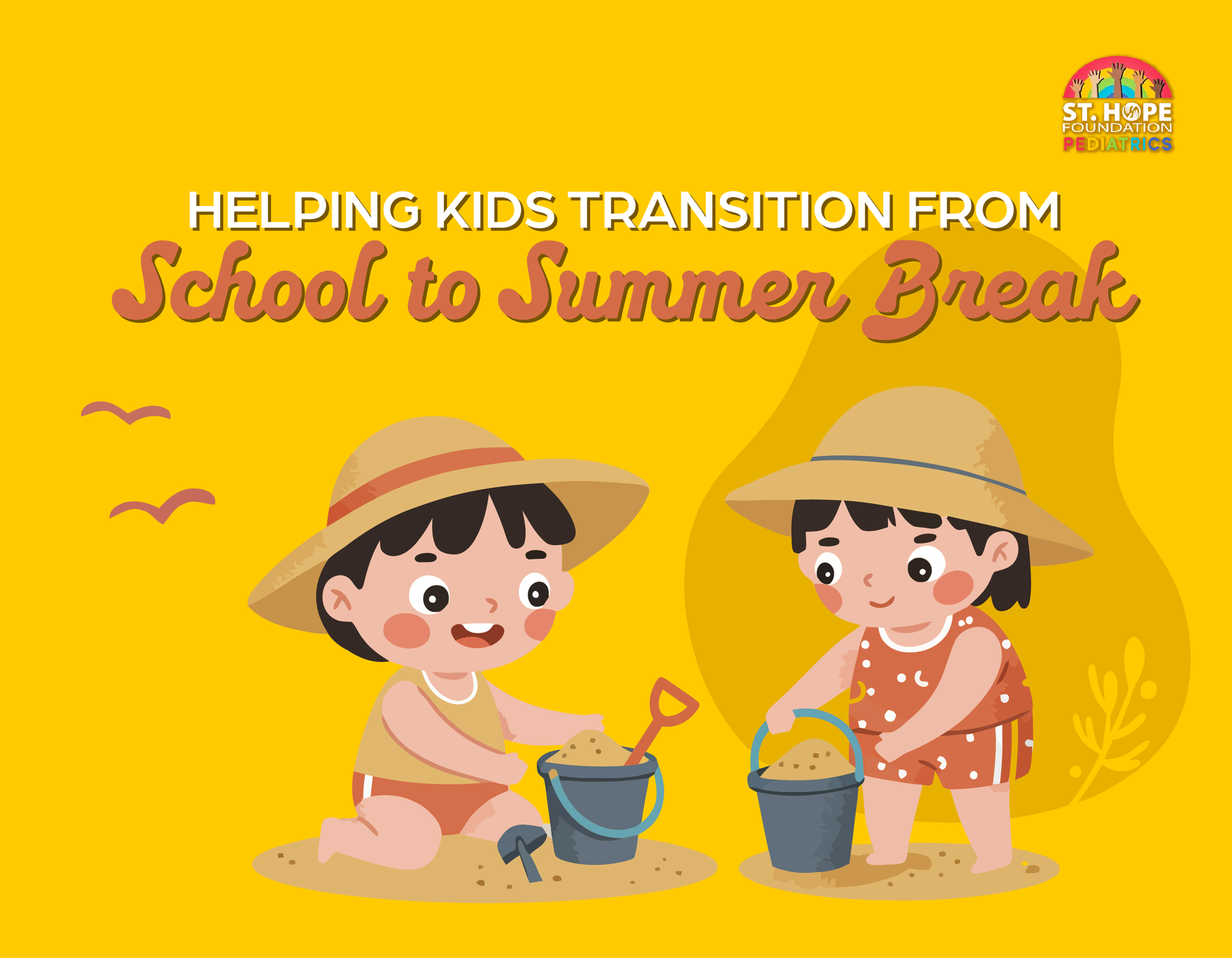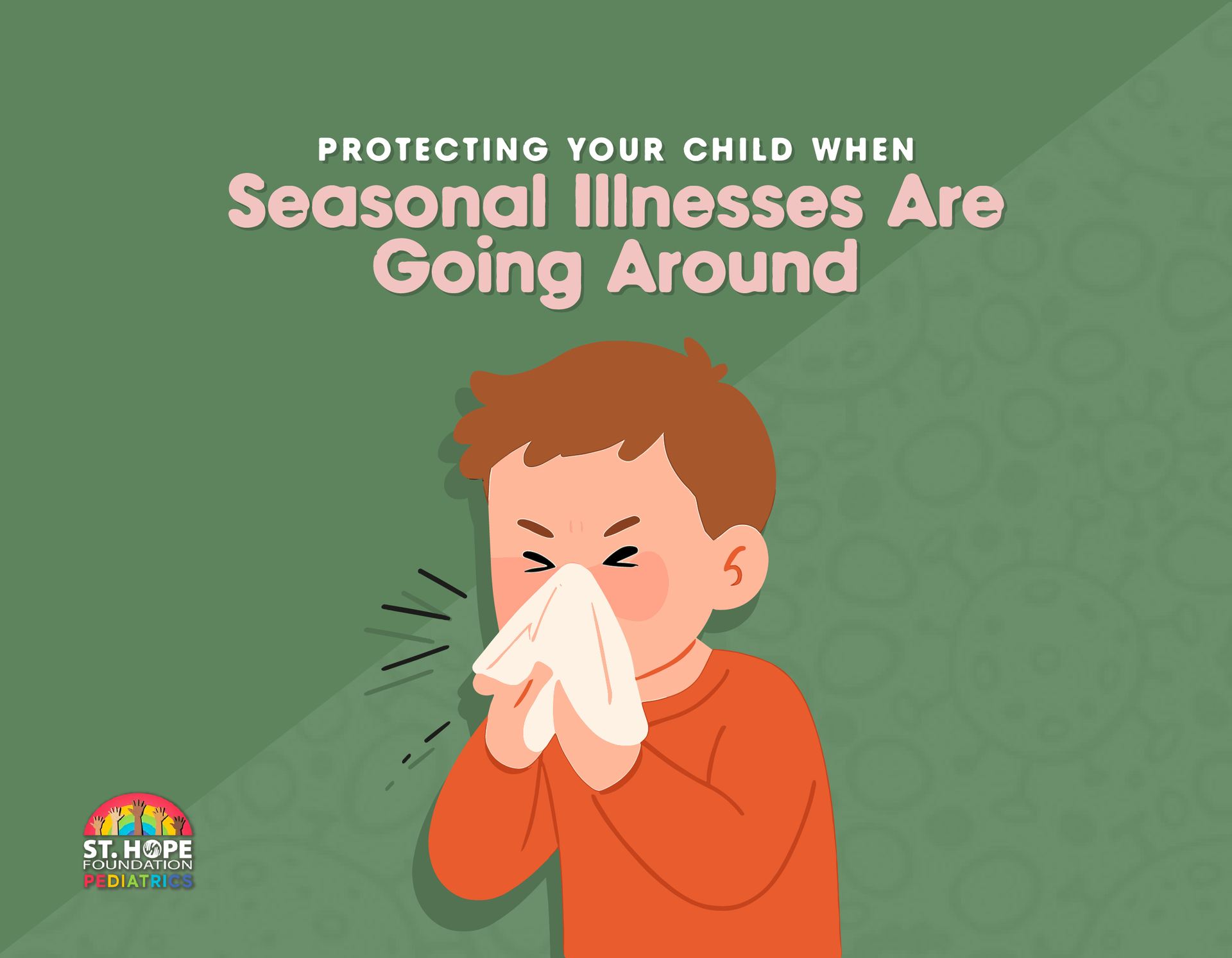
As the school year winds down, families start looking forward to the freedom and fun of summer break. But for kids, transitioning from the structured routine of school to the unstructured days of summer can be both exciting and overwhelming. Some children may feel anxious about the sudden change, while others might struggle with maintaining a healthy routine.
Helping your child transition smoothly from school to summer doesn’t have to be stressful. With a little planning and support, summer can become a time of growth, adventure and well-being for your whole family.
Maintain a Predictable Routine (With Flexibility)
Children thrive on routine, even during summer. While summer doesn’t need to mirror the school year schedule, having some structure helps kids feel secure and reduces anxiety.
Create a daily rhythm that includes:
- Consistent wake-up and bedtime routines
- Designated times for meals and snacks
- A mix of active play, quiet time and learning activities
Involve your child in building the new routine. Giving them a voice fosters independence and helps them embrace the new schedule.
Establishing a good summer routine can also make it easier to transition back to school once summer is over, particularly if you can keep wake-up and bedtimes similar.
Set Screen Time Boundaries
With more free time and fewer academic responsibilities, screen time can easily skyrocket during summer. While it’s okay to allow some digital entertainment, setting healthy boundaries is important for your child’s development and mental health.
Try these screen time strategies:
- Establish daily limits and stick to them
- Encourage device-free zones, such as during meals and bedtime
- Offer engaging alternatives: board games, books, puzzles, outdoor play, or arts and crafts
Parents may find it easier to enforce screen rules by modeling healthy screen habits themselves. Try reducing your own device use during family time or when your kids are awake and around.
Encourage Physical Activity
School days often include structured physical education and recess, but summer may lack that built-in movement. Staying active during the break supports physical health, reduces stress and improves sleep and mood.
Fun ways to keep your kids moving:
- Morning bike rides or nature walks
- Backyard games like tag, water balloon fights or obstacle courses
- Enroll them in summer sports, dance or swim classes
- Set up a “family fitness challenge” to make it a bonding activity
The summer weather in Houston can make physical activity during summer break more difficult. It’s often safer for kids to play outside in the morning or in the evening when the temperatures are a bit lower and there’s less intense sun exposure.
Promote Lifelong Learning
Just because school is out doesn’t mean learning has to stop. Summer is the perfect time to explore your child’s interests in a fun, pressure-free way.
Try these ideas:
- Visit your local library and start a summer reading challenge
- Take educational day trips to museums, aquariums or historical sites
- Explore STEM kits, nature journals, or kid-friendly documentaries
- Let kids help with cooking, gardening or basic DIY projects
Remember, learning doesn’t have to feel like homework, it’s about discovery and creativity. If your child is passionate about some facet of science, tech or literature, look for ways to encourage and foster their interest.
Support Social Connections
Summer can sometimes feel isolating without daily classroom interaction. Help your child maintain social connections with friends, neighbors and family members.
Plan opportunities for social time:
- Schedule playdates, picnics or park meet-ups
- Organize group outings like movie nights or bowling trips
- Encourage participation in camps, community programs or volunteer opportunities
Social interactions not only prevent loneliness but also help kids build confidence and communication skills.
Monitor Mental and Emotional Well-Being
For some kids, the end of the school year can trigger mixed emotions, including relief, sadness or even anxiety about the next grade level. Summer can be a time to slow down and support your child’s emotional development.
Ways to nurture their mental health:
- Check in regularly with open-ended questions like “How are you feeling today?” or “What was the best part of your day?”
- Encourage mindfulness activities like journaling, breathing exercises or yoga
- Watch for signs of anxiety, withdrawal or mood changes that may need professional support
Keep Regular Pediatric Checkups
With school out of the way, summer is the perfect time to schedule your child’s annual well-checks, immunizations and any needed follow-ups. Staying on top of your child’s health ensures they’re ready to start the next school year strong.
At St. Hope Pediatrics, we make it easy for families to access compassionate, comprehensive care during the summer months.
From physicals and vaccines to mental health support and developmental screenings, our team is here for your child every step of the way.
Plan for a Positive Return to School
As the summer break progresses, slowly reintroduce school-year routines and talk positively about what lies ahead. Talk to them about any concerns or anxiety they may have about the upcoming year. This helps ease the back-to-school transition once August arrives.
Our Houston Team Is Here for Your Family All Year Round
At St. Hope Pediatric, we know that every child is unique and so are their needs during summer break. Our pediatric team is dedicated to helping your child thrive physically, emotionally and socially, from the last day of school to the first day back.
Call St. Hope Pediatrics today at (713) 778-1300 to schedule your child’s summer wellness check.













